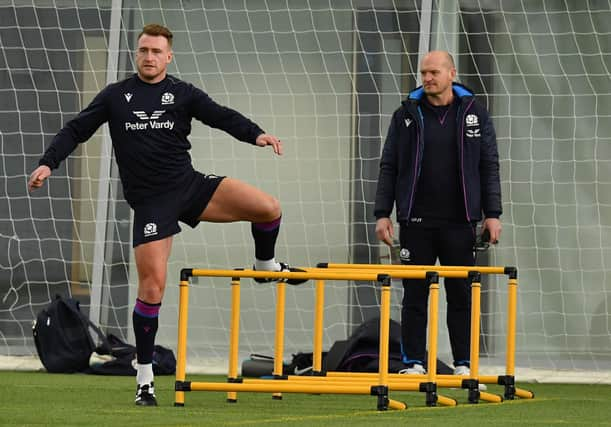Triple Crown statistics paint grim picture for Scotland side who swapped optimism for rancour


Scotland, by contrast, have not won any since the championship was expanded in 2000. You have to go back to the 1990 Grand Slam for their last Triple Crown, back in the amateur days when no trophy existed. It remains a mythical honour for the Scots, an intangible award beyond their grasp.
Sifting through the wreckage of another doomed campaign, it's hard to find too many positives. Scotland appear to have gone backwards. When they closed out the 2021 championship with a coruscating win over France in Paris, a warm feeling surrounded the national team, a sense of optimism that this group of players could make good on their talent and potential.
Advertisement
Hide AdAdvertisement
Hide AdOne year on and there's only rancour. When the BBC broke the story on Friday that six players had gone on an unauthorised night out in Edinburgh on their return from Rome the previous weekend it set in motion a chain of events which could cost Stuart Hogg the captaincy and leave head coach Gregor Townsend exposed.


The pair’s failure to address the matter in a cogent and cool-headed way has exacerbated the situation. Refusing to explain what happened or show any genuine contrition simply created a vacuum to be filled with speculation and criticism.
No-one thinks they should be hanged, drawn and quartered but a little humility wouldn't go amiss.
From the outside looking in, it's hard to understand why Scotland felt the need to rush away from Rome after beating Italy 33-22 on Saturday, March 12.
There was talk of the Sunday being a "recovery day" but where would have been the harm in booking out a restaurant in the Italian capital post-match, enjoying what was a good win in each other's company, and then flying home the following day?
Instead, the squad were hurried out the stadium and on to a plane back to Edinburgh, forsaking one of the great European cities for the dubious lure of George Street’s fleshpots.
People can become very po-faced over incidents like this and nobody batted an eyelid when Zander Fagerson went on Rugby Special after the win over England on the opening weekend to say that a few boys had “ripped the arse out of it” on the Saturday night.
The difference this time is the personnel involved and the suggestion that a schism exists. As well as Hogg, the Edinburgh Six included Finn Russell and Ali Price, three team leaders who should have known better.
Advertisement
Hide AdAdvertisement
Hide AdHogg and Russell have been the poster boys of Scottish rugby for almost a decade now, world class players who delivered silverware for Glasgow Warriors before finding fame and fortune with clubs in England and France, respectively.
There have been glorious moments with Scotland, too, but perhaps not as many as there should have been.
Calcutta Cups for sure, memorable wins over Australia, France and Wales, too, and they were a hair’s breadth away from reaching the 2015 World Cup semi-finals under Vern Cotter. But the last World Cup saw them exit at the group stage and they haven’t come close to challenging at the top end of the Six Nations where third place and three wins in a season remains their high point.
Both will be 31 when the next World Cup comes around and it could be their last appearance on the global stage.
What did the younger members of the squad make of the senior pros’ aborted night out in Edinburgh? The miscreants will argue that the protocols were not as clear as they might have been but it wasn’t a great look.
Neither was the failure of the Scotland players or coaching staff to attend the post-match dinner in Dublin, the first time Ireland had held such an event since the pandemic. The Scots will doubtless cite Covid concerns but it would have shown some respect for Ireland’s achievements to have shown face.
They may even have learned something, like how a country with a similar population and rugby profile can produce a national team and provincial sides capable of challenging at the top end of the game.
A message from the Editor: Thank you for reading this article. We're more reliant on your support than ever as the shift in consumer habits brought about by Coronavirus impacts our advertisers. If you haven't already, please consider supporting our trusted, fact-checked journalism by taking out a digital subscription.
Comments
Want to join the conversation? Please or to comment on this article.

